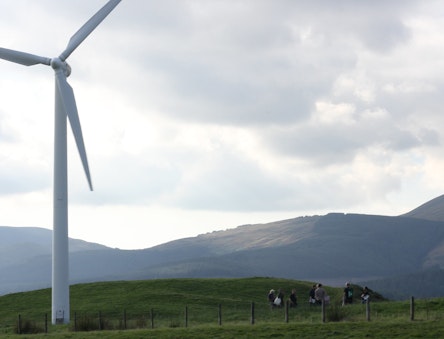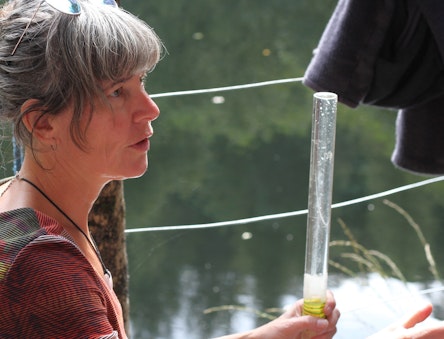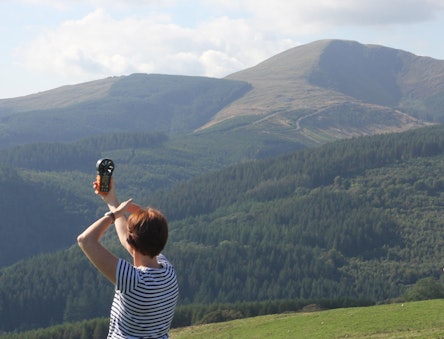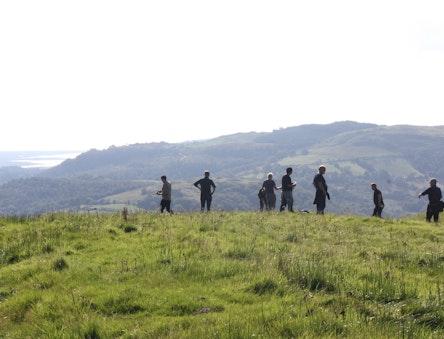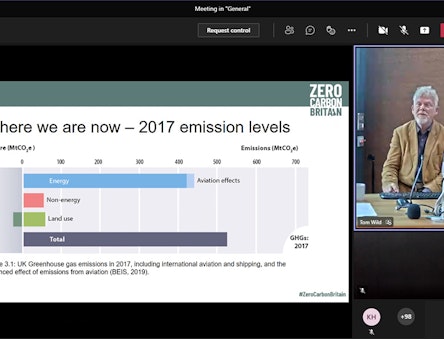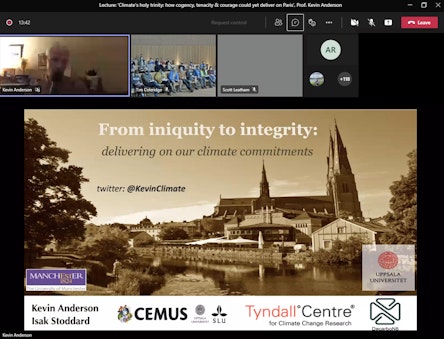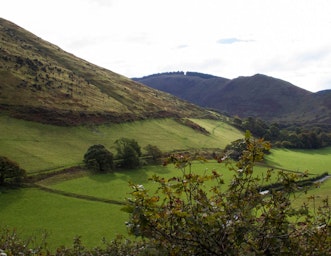
2021 Graduate School postgraduate courses begin
September 17, 2021Home » 2021 Graduate School postgraduate courses begin
This week over 250 new MSc students started their postgraduate journeys in Sustainability, with students starting their studies with us both via distance learning and in small groups on-site. Find out more about how their first week of study went in this blog.
Our postgraduate courses run through CAT’s Graduate School of the Environment have once again proven to be popular with another record number of students starting their postgraduate studies in sustainability.
With an increase in online events run by CAT over the past year and a half keeping applicants engaged, we were inundated this year with applications from passionate students all looking to develop the skills and knowledge to respond to the climate and biodiversity crisis.
With so much interest we, unfortunately, had to close some of our courses earlier than expected. We ran an applications waitlist over the summer but we look forward to being able to offer applicants who missed out on studying with us this year the chance to start in September 2022.
This year’s first MSc module, Sustainability and Adaptation: Concepts and Planning, began a month after the updated IPPC report and a few months ahead of COP26, both of which were major topics of discussion during the week’s lectures and seminars. As a core module on all our MSc courses, this module helped provide new students with an introduction to sustainability in relation to food, transport, adaptation, circular economics and more.
To reduce risk from COVID-19 onsite teaching was limited to two groups of around 48 students. With each group on-site at different times. Teaching sessions were held in a blended format, with some guest speakers like Professor Kevin Anderson joining students online for his keynote lecture and others like Paul Allen and Dr Anna Bullen, from CAT’s Zero Carbon Britain Hub and Innovation Lab, presenting on-site and live streaming to students joining via distance learning, in the UK and Overseas.

With teaching staff continuing to use Microsoft Teams as a Virtual Learning Environment for all students, the start of the core introductory module was easily accessible for those who wanted to join sessions live from home or for those who wanted to catch up on lectures at a later time, providing flexibility for our students studying part-time, while working, or those who need to work around other commitments.
During the week students explored sustainability topics with a range of guest lecturers including ‘Sustainable Transport Solutions’ with John Whitelegg, ‘Transformation and Economics’ with Susan Steed and ‘Nature-based Solutions for Adaptation’ with Dr Haseeb Irfanullah, who joined online from Bangladesh, along with a range of other introductory sessions on topics from CAT Senior Lecturers and Programme Leaders.
The on-site visits also focused on nature connection, with a tour of CAT giving students who may have only seen the CAT site during a Virtual Open Day the opportunity to experience it in person. Small group practicals in sustainable design and renewable energy also took place in the first half of the week for our sustainable building and energy students with practical sessions in critical thinking, ecological assessment, water and sanitation in the latter half of the week for our ecology, food and behaviour change students.

Amongst the 250 new MSc students were Julie Saumagne 2021 recipient of the Sir John Houghton bursary and MSc Sustainability and Adaptation Planning student, and Dafydd Haine, a student on our MSc Sustainability and Behaviour Change and 2021 recipient of the Ethel and Gwynne Morgan Trust bursary.
Dafydd said “It’s been a busy first week settling into studying at CAT online and in-person, but wonderful to start orientating myself with the first module and meeting other students on the course. I’ve enjoyed scoping out the broad range of topics covered across the module, and in particular, learning more about systems theory and nature connection. The CAT site itself is a beautiful place to explore and discuss these themes alongside other students, and we were fortunate to have some good weather too!”
Julie added “I was also lucky enough to study on-site at the start of the week, where lectures, practical activities and social times followed each other in a greatly organised fashion, guiding us through the complexity of the climate challenges intellectually, personally, and physically. Staying on the CAT site which embodies what our collective future could look like, we were walked through some potential solutions to the challenges we’ll face– in one case: testing the water through the entire cycle of its life from CAT’s reservoir to the reed beds. The few days at CAT have fuelled me with inspiration and energy to continue exploring the issues in more detail from home and I can’t wait to come back for my next study visit!”
Next week we will also be welcoming our new cohort of MArch Sustainable Architecture Part 2 students on-site who will be taking the next step in their journey to becoming qualified architects in the UK. A big welcome to all our new students and we can’t wait to see how they all go on to use the knowledge and skills they’ll be learning from their time on our courses.
Interested in studying at CAT?
If you’re inspired to study at CAT and develop the skills and knowledge to create zero-carbon solutions then you could join us from next September. We have opened our applications for September 2022 entry so do get in touch with Alis Rees, Graduate School Marketing Officer or join our next Virtual Open Day to find out more. Due to the high interest in our courses, we encourage you to apply early as applications are considered on a first-come first-served basis.
Don’t miss out
Join us for our next free webinar on September 22 at 7:30pm with leading climate scientist Professor Kevin Anderson who will lay bare the scope, scale and urgency of the climate crisis, and offer thoughts on what needs to happen in the run up to COP26 to create profound change. CAT’s Zero Carbon Britain Hub team will host the webinar and deliver an overview of their change making work.
- Graduate School
Related Topics
Related Pages
Related news

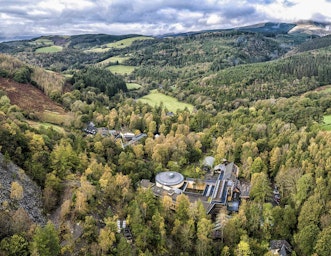
CAT Student Bursaries Announced for 2025
30th January 2025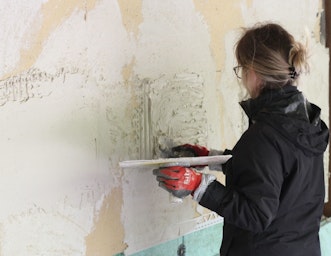
Ready for retrofit
29th January 2025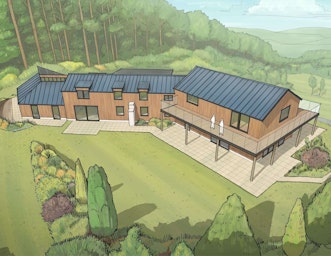
Hawkland — eco business takes flight
29th January 2025GRADUATE SCHOOL OF THE ENVIRONMENT
ACT NOW FOR A SUSTAINABLE FUTURE
Learn more about our exciting postgraduate courses and sign up for our emails to stay up-to-date on all the latest.

